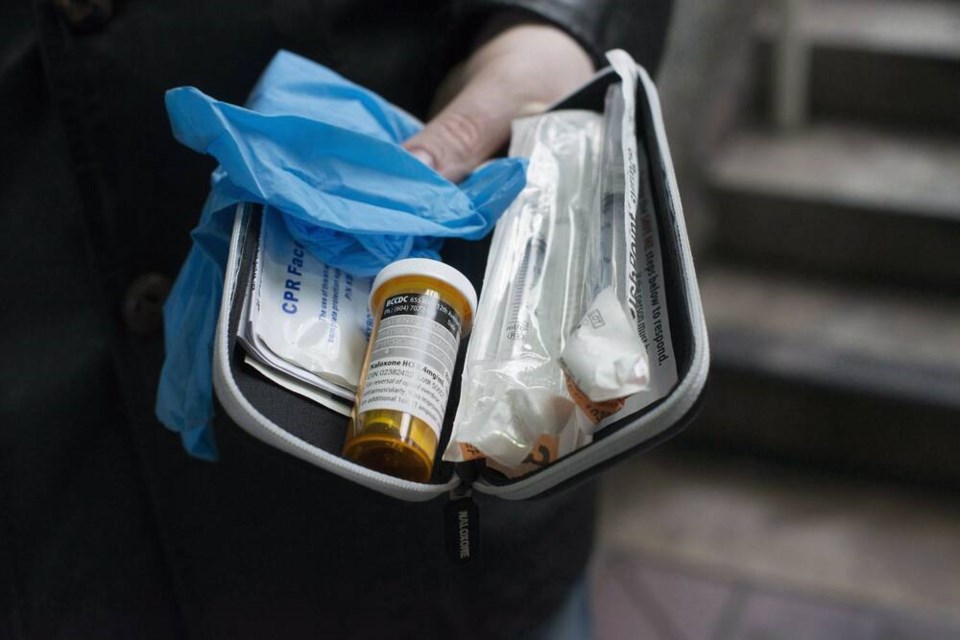More than 1,500 people died of illicit-drug poisonings in the first nine months of 2021, says the B.C. Coroners Service.
There were 333 deaths due to suspected drug overdoses in August and September 2021 — about 5.5 a day — for a total of 1,534 this year to date.
“Once again, we are reporting record numbers of deaths in our province due to the toxic illicit drug supply,” chief coroner Lisa Lapointe said in a statement released Tuesday morning.
The nine-month total of 1,534 deaths is the highest recorded for that time period — almost 24 per cent highter that the 1,240 deaths recorded between January and September 2020.
The B.C.-wide death rate is 39.4 per 100,000 residents. That’s nearly double the rate in 2016, when the overdose crisis was declared a public-health emergency.
Vancouver, Thompson Cariboo, Northwest, North Vancouver Island and Fraser East have the highest rates of drug overdoses so far this year.
Both the 181 reported deaths in August and the 152 deaths reported in September are record numbers for those months, according to the B.C. Coroners Service.
Sheila Malcolmson, B.C.’s minister of mental health and addictions, is scheduled to make an announcement at 11:30 a.m. today about enhancing treatment and recovery services for people living with addictions in the Fraser Health region. She said she will comment further on the opioid crisis at that time.
Malcolmson said it’s “heartbreaking” to hear of the lives lost in August and September. The overdose deaths are not, however, unique to B.C. she said.
“The drug-poisoning crisis is happening all over Canada, and is affecting communities across the country and throughout our province,” Malcolmson said.
Toxicology results continue to show the illicit drug supply in B.C. is increasingly toxic.
Fentanyl and its similar drugs have been detected in 84 per cent of all illicit toxicity deaths in 2021, with the even more potent carfentanil detected in twice as many deaths as in 2020.
The vast majority of toxicological results indicate the presence of multiple substances, with cocaine, methamphetamine/amphetamine and other opioids the three most frequently detected after fentanyl.
Lapointe continues to call for urgent action on a number of fronts, including broader access to a safe supply of drugs, more readily available and efficient drug-checking services, and a shift to a health-centred approach rather than one of law enforcement.
B.C. has applied to the federal government to decriminalize possession of illicit drugs for personal use.
The province is also continuing to build on its emergency response services, harm reduction, treatment and recovery services, said Malcolmson.



